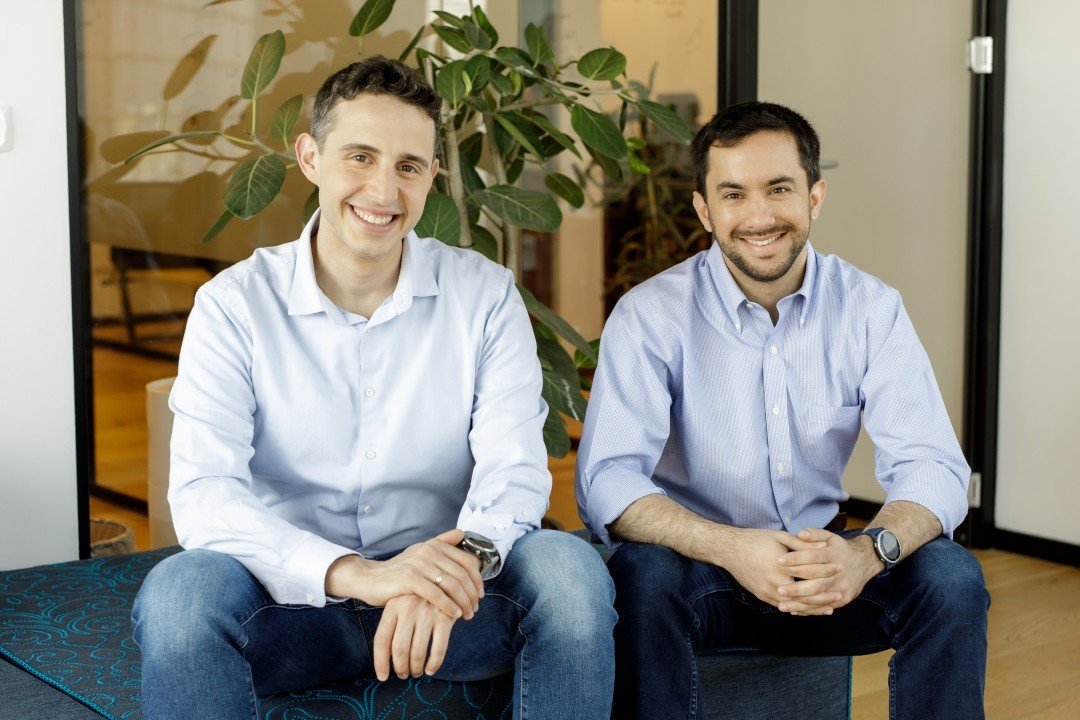How HR Can Help Israeli Startups Grow
Check out Linor’s article, previously published on HR.com! Linor speaks to the acute shortage of human capital in the cybersecurity ecosystem, the criticality of streamlined HR processes for a startup looking to accelerate growth, and how her role allows tech-savvy founders to focus their attention on product and business development, when it matters most.
Open ModalThe past record-breaking year in the Israeli startup industry has generated profits, prestige and cemented the status of Israeli entrepreneurs as leaders on a global scale. With this boom – which seems to be continuing well into 2022 – comes rapid, exponential growth in both the size and the valuation of these companies. Conversations with industry leaders, cybersecurity entrepreneurs, and our portfolio companies’ founders introduced us to a recurring concern that has grown considerably in the aftermath of Covid-19. Recruitment challenges and a severe shortage of talented applicants, especially in research and development (R&D) and technological positions, have now become top-of-mind in our industry, due to the potential lasting impact on the growth and survival of startups in both early and later stages. Hands-on venture capital firms helping startups grow into large companies had to take notice and address this burgeoning problem.
I recently joined YL Ventures, a global early-stage cybersecurity-focused VC, as its Head of HR, as they understood the potential impact of HR challenges on the success of their portfolio companies. This position is a novel one for VC firms and manifests the interest of the firm to provide its portfolio companies with a well-rounded suite of services, now including support in HR strategy and recruitment.
During my previous position as Director of People at Axonius, a cybersecurity company, I was tasked with managing the HR implications of a company’s stunning growth from a small startup of 30 employees based in Israel, to an industry unicorn with a global reach of 200 staff members – within two years. The HR challenges I saw at Axonius were rooted in the strategic shift Israeli startups have made. The previous ultimate goal of rushing to the largest exit offered has shifted, with startups now focusing on building large, market-dominating enterprises. Large companies need large-scale labor, and the industry is in a recruiting frenzy. The competitive nature of recruitment in the Israeli tech industry has been exacerbated in the past two years, with numerous companies vying for the most talented people. It has become a “candidate’s market,” as job seekers are taking their time and evaluating their options, at times presenting unprecedented demands from potential employers.
With budgets to do so, as evidenced by the massive growth in the size of early funding rounds, the competition to recruit talented candidates has become cut-throat. Our data shows that so far in 2021, Israeli cybersecurity startups have more than doubled the capital they raised in 2020 – to over $7B. With larger budgets and room to grow, the current talent pool is hardly sufficient.
We can’t underestimate the consequences this acute shortage in human capital may have on early-stage startups. The paramount task of turning an idea into a product rests on the shoulders of a lean team of professionals, who are essentially responsible for the critical ‘make or break’ stage in the startup’s entry into the market. With few hands on deck, surmounting this challenge is difficult, to say the least.
Additionally, when the tech-savvy founders realize they need to devote time, resources and focus on recruitment and training, these tasks inevitably divert attention from product development and company growth. With no HR division or professional in-house HR experts, frustration, loss of focus, and a rush to recruit less-than-optimal candidates may occur.
Prioritizing the goals and metrics for my position at the firm takes into account the separate but complementary needs of both a cybersecurity VC and its early-stage portfolio companies. I meet with our founders on a daily, weekly, and monthly basis in order to devise a strategic foundation for their HR priorities.
Streamlined HR processes are crucial for a startup focused on accelerated growth, in order to ensure that they employ the right talent. With recruitment being the most significant pain point for founders, my priority is currently generating a top-notch candidate pool that is tailored to the needs of our portfolio companies. I strive to ensure that the understandable lack of resources and time on the part of our startups will not hurt their chances of recruiting the best in the industry. In order to do so, I have weekly meetings with the core team in order to assess relevant candidates that I can introduce them to, and I guide them through the recruitment process. Once recruitment is underway, I work with our founders on establishing and implementing critical HR processes, including on and off-boarding procedures, guidelines, and playbooks on opening offices, employee well-being, termination, performance reviews, and more.
With founders struggling to attract superior talent, I also focus on the strategic importance of employer and company branding. Beyond ensuring the well-being of current and future employees, this process is a critical part of strengthening the company’s competitive edge in the industry and speaks to the company’s values, morals, and ethics. These are consequential company building blocks, and demand founders’ attention.
When working with our founders on HR basics, these are our top 5 tips:
1. Plan ahead for crunch time. HR strategies must be embedded into the preliminary building blocks of a startup’s lifecycle. Do not wait until the pressure mounts and avoid reckless recruiting and employee burnout by making this one of your earliest goals.
2. Automating HR and training processes to enable efficiency at scale will allow you to devote less time to hands-on activities and more time to optimize your recruitment needs as your company grows.
3. Decide on your values. The founding team should consider core values that will define and guide the company’s growth, ensuring that the right people are recruited and that expectations are clear.
4. When using employment agencies for recruitment, the first step should be conducting an in-house thought process. The management team should assess the company’s needs and guidelines for each position before providing the agency with information and requests, to ensure that they won’t be inundated with countless CVs, many of them irrelevant, wasting more time and resources.
5. Act fast. Once a top candidate has been pinpointed, the recruitment process must be rapid, efficient, and transparent. This will create a positive impression on the candidate, and increase your chances of signing a contract before your competition.





